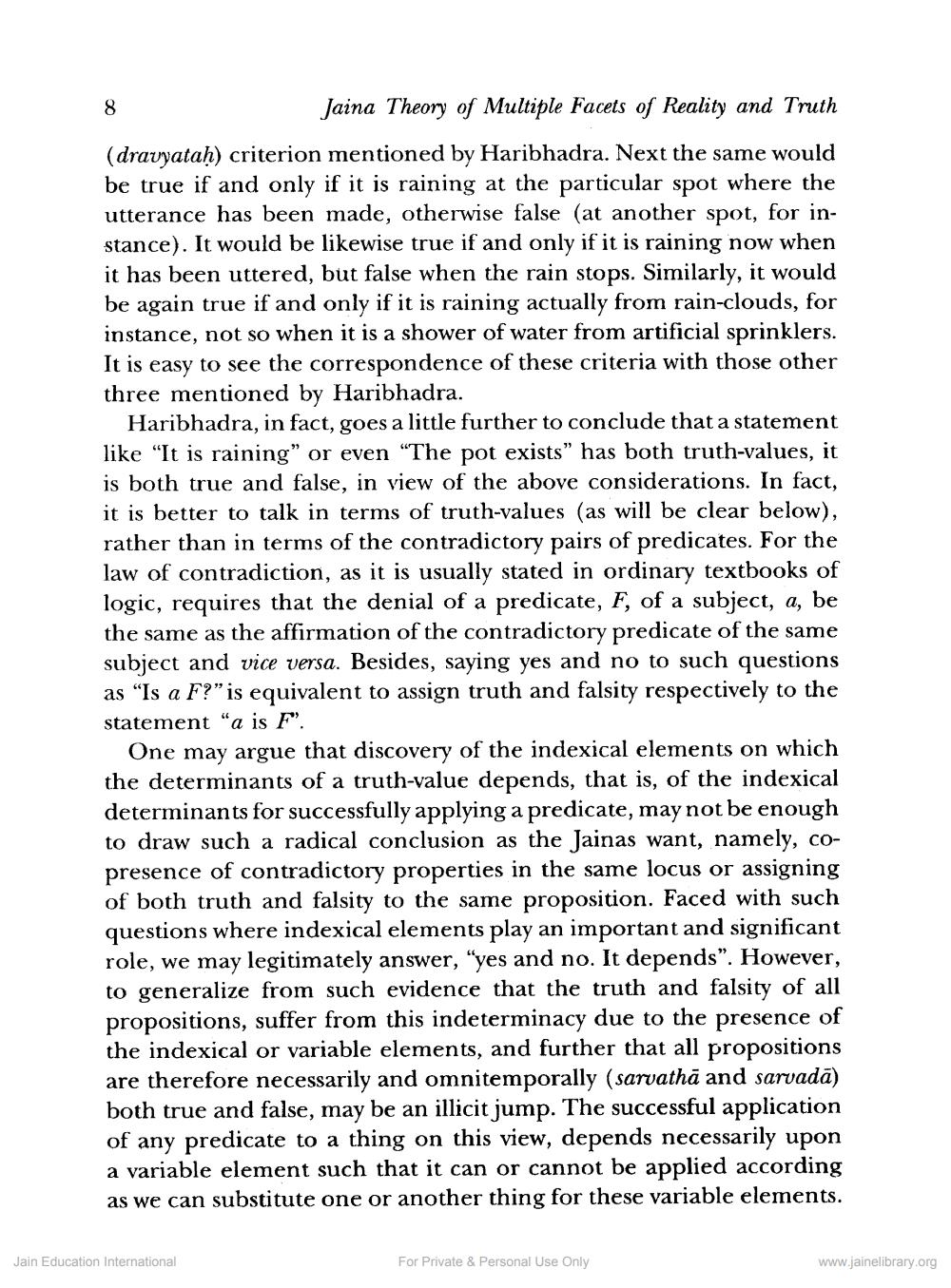________________
Jaina Theory of Multiple Facets of Reality and Truth
(dravyatah) criterion mentioned by Haribhadra. Next the same would be true if and only if it is raining at the particular spot where the utterance has been made, otherwise false (at another spot, for instance). It would be likewise true if and only if it is raining now when it has been uttered, but false when the rain stops. Similarly, it would be again true if and only if it is raining actually from rain-clouds, for instance, not so when it is a shower of water from artificial sprinklers. It is easy to see the correspondence of these criteria with those other three mentioned by Haribhadra.
Haribhadra, in fact, goes a little further to conclude that a statement like "It is raining” or even “The pot exists” has both truth-values, it is both true and false, in view of the above considerations. In fact, it is better to talk in terms of truth-values (as will be clear below), rather than in terms of the contradictory pairs of predicates. For the law of contradiction, as it is usually stated in ordinary textbooks of logic, requires that the denial of a predicate, F, of a subject, a, be the same as the affirmation of the contradictory predicate of the same subject and vice versa. Besides, saying yes and no to such questions as "Is a F?” is equivalent to assign truth and falsity respectively to the statement "a is F".
One may argue that discovery of the indexical elements on which the determinants of a truth-value depends, that is, of the indexical determinants for successfully applying a predicate, may not be enough to draw such a radical conclusion as the Jainas want, namely, copresence of contradictory properties in the same locus or assigning of both truth and falsity to the same proposition. Faced with such questions where indexical elements play an important and significant role, we may legitimately answer, "yes and no. It depends”. However, to generalize from such evidence that the truth and falsity of all propositions, suffer from this indeterminacy due to the presence of the indexical or variable elements, and further that all propositions are therefore necessarily and omnitemporally (sarvathā and sarvadā) both true and false, may be an illicit jump. The successful application of any predicate to a thing on this view, depends necessarily upon a variable element such that it can or cannot be applied according as we can substitute one or another thing for these variable elements.
Jain Education International
For Private & Personal Use Only
www.jainelibrary.org




